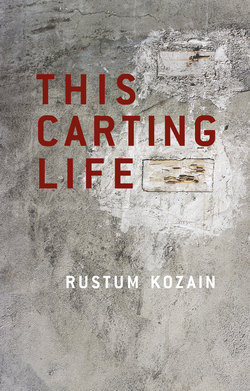Читать книгу This Carting Life - Rustum Kozain - Страница 7
На сайте Литреса книга снята с продажи.
ОглавлениеHome town, 1992
We drive into the mountains, knots left tied,
not undone in the churns I push back,
folding clouds to the low sky. You, two-month
lover, and I. There are no postcards
among the fynbos. When you leave, I can send
nothing but calendars checked for tear gas,
closed gates, and flags torn from school uniforms
fluttering on fences in their own ways.
The calendars are unmarked but for when
we were kept from the mountains
by the cold stares
of foreign fathers. But I wish to hold
on to the mountains as any child should;
wish to drag them behind us in our
endless reconnoitres as you sweep my palms
for mines, finding only words that take us,
two haggard soldiers, to the scarred rims
of our silence. I wish to show you
where I want to stay, die, and become
the mountains. ‘It’s so much,’ you say,
‘my fathers, yours. Mine ran the land
as hunters, muzzles aiming at trees, folding
back loam. Ploughshares, bullets, all from the same
smithy, the only words. These words still hang
over our bare picnic, in the wind on our skins
up here in the mountains, and your heart
that dreams of rocks. So much that cannot
be undone.’ We love each other for that ache.
*
Earlier, we stand in a graveyard overgrown
with stories dry and heady as fire hazards.
I don’t know what brought us to this hot
steady Paarl air where stories are caked
tracks, where brush lies cracked and clumped
under heavy boots and stone. You, my lover,
and you, my mother, and I. I don’t know.
Maybe to see you, Mother, stretch your legs
over stone-chips and the prickle of burs
blown onto your parents’ grave; to see you
crouch for coolness in the shade of their tombstone;
maybe to hear you tell where they came from,
these grandparents I never knew: Grandma
dead before her title, Grandpa the unseen
Santa Claus who died when I was six.
What cancers ate at them, Mother? Maybe
I wanted you to cry and touch the tombstone;
wanted you to tell me why you long for them,
so I could own that loss and turn it
into loneliness. Or
I wanted you to turn to that stone
and see a shadow does fall there, over
your parents: they can find no peace
under neglected land. No peace
even in each other, because I want them
to know how this country still crawls
with cancers I somehow hope ate at them.
Postmortem tragedies I bring with me
to this waste where people pay
respect to their humiliated dead
in a cemetery heavy with Boland stone.
I, aware of your age every six months’
visit to you, Mother, stand with one foot
on the rim of the grave. Like a pioneer.
But you call me your prodigal son.
I wait for the moments air thickens
with melodramatic words
and wish for you just to cry; and hide
that wish by pitching pebbles at broken jars
filled every Christmas with hydrangea
by you, I suspect, and now blurred brown
like the windscreens of old, abandoned cars.
We pull some dry weeds from the stones
and shake the dust behind us, brittle earth
dropped along the narrow rows: what we wish
were gestures of respect but, white-hot like
February, the history in even our own
loss. Today’s sun still hardens
the labourers’ blood to vineyard knots
and their eyes like grapes, bloodshot universes.
What did your parents muse as the fruit
exploded against their palates, Mother?
On the cool porch, did they peel grapes
and remark the veins palming off onto their skins?
Yes, our stories fly like sparks from spades
yet ache as a gravedigger’s hobble home.
But your tears, Mother, would not come before
a stranger, only a longing. She carries
her own graves and knows the choking down
of tears; your son’s lover whose father died
kissing colonial loam in Georgia, USA,
hunting with his heart racing on cocaine.
I turn from you both to that fish gnawing
in me: solitude. And my silence.
I am dying too, perhaps come to say
goodbye to these people I never knew.
These losses that never belonged to us
nor the gravediggers. We, Mother, will
remain ants in dry colonies, feeding on grass
in stony graveyards, generations on.
